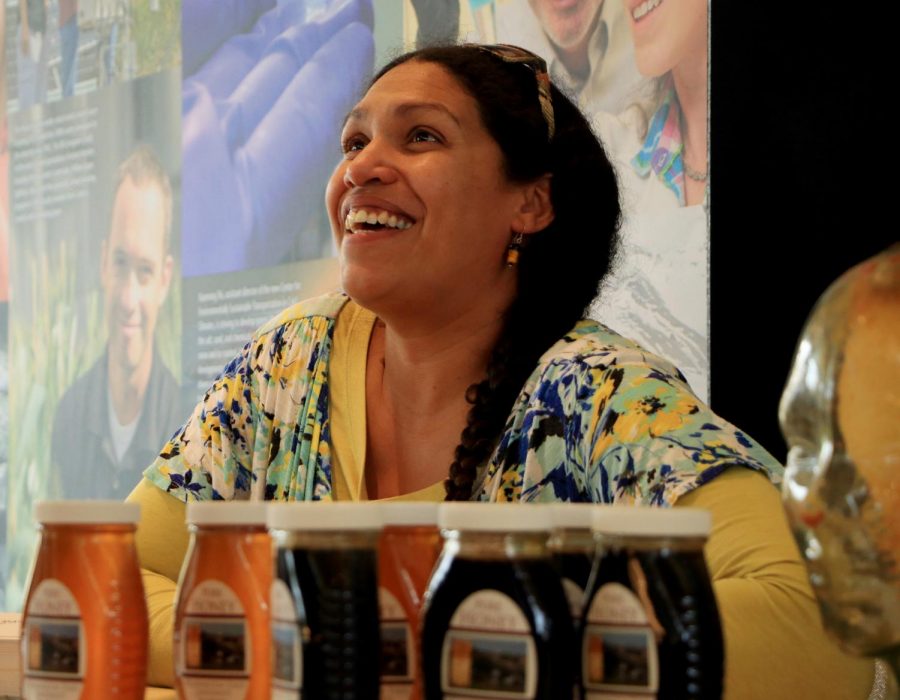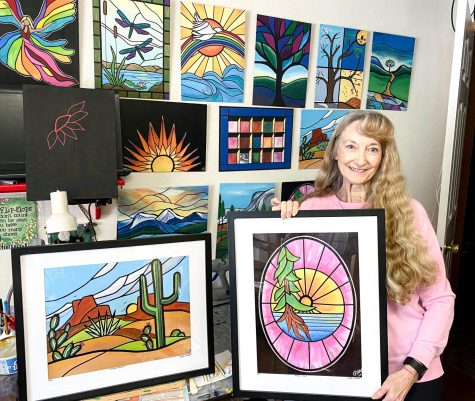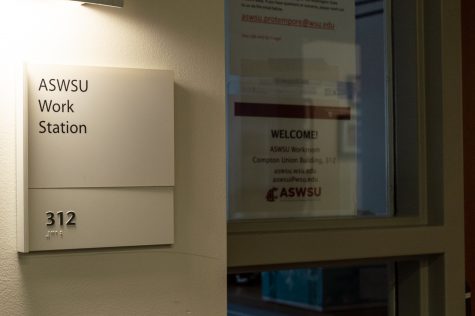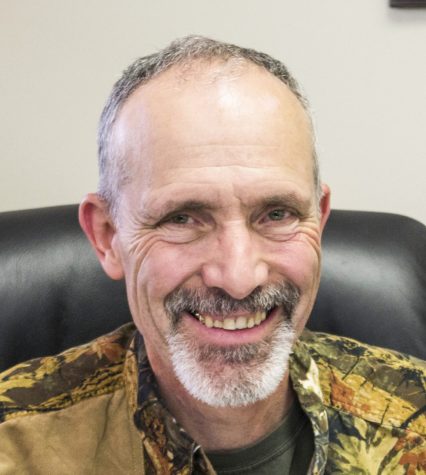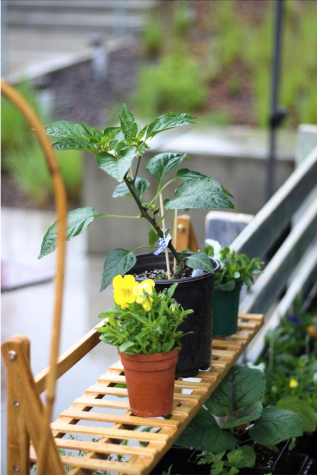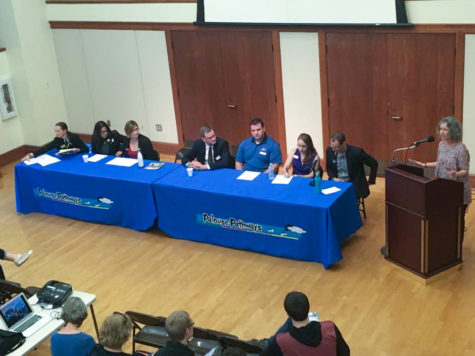Tasting honey, raising awareness
Buckwheat field, wild flower honey was available for sampling
TEVA MAYER | The Daily Evergreen
Graduate student in the Shepherd Bee Lab Melanie Kirby answers questions about the university’s bees during the WSU Honey Tasting and Open House held at the Brelsford Visitor Center on Friday.
November 6, 2017
A honey tasting at the Brelsford WSU Visitor Center was created to help raise awareness and funds for the campus bee facilities.
In June 2016, a campaign began to raise funds for WSU Honey Bee and Pollinator Research Facilities in order to keep up with the growing and internationally-recognized research and outreach training.
Director of Development Melissa Bean said it was the first time they had been asked to come to the Visitor Center to hold a sampling event.
“We are super grateful to be here for Dad’s Weekend,” Bean said.
At the tasting, two types of honeys were available to sample. There was a dark honey from bees that pollinated buckwheat fields and a lighter amber honey from bees that pollinated local wild flowers.
Moscow resident Robin Woods said she did not like the buckwheat honey.
She had attended an outreach training class available through Honey Bee and Pollinator’s Breeding Program with her husband in June. She attended the event to get advice from assistant professor Brandon Hopkins for their queen bee and colony.
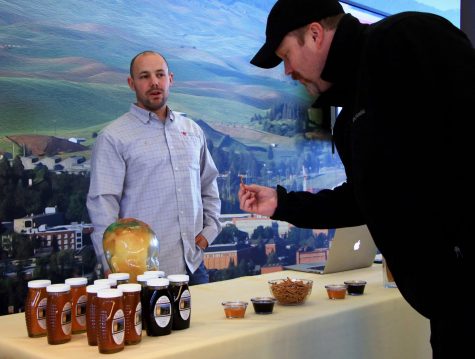
Brandon Hopkins, department of entomology assistant professor, explains the honey available for tasting as Tom Hopkins, a visiting dad, takes a sample.
Hopkins, manager of WSU Apiary Program, said that they have many colonies around the Palouse and more than 20 researchers working on and studying honey bees and pollinators.
The dark buckwheat honey, which some samplers disliked, was from a colony near St. John. A few mentioned how it tasted earthy and rich.
Hopkins said the facility will be near WSU Eggert Family Organic Farm fields and will have improved laboratories.
“They have lots of great equipment already,” Bean said. “But it would be easier to collaborate in the same facility instead of having different ones around campus.”
Construction will not start until all funds are raised, and currently $2 million of the $16 million goal has been raised for the building, Bean said.
“So, if you know anyone with $14 million laying around, or deep pockets, send them my way,” Bean said.
Senior animal science major Kati Moore said bees are necessary for the environment to thrive.
Hopkins similarly said, “Bees are of great value to agriculture because they are a natural pollinator.”
The breeding program has helped local community members, like Woods, start their own colony. A classroom in the new facilities will allow further community outreach with newer technology.
It seems to be more important, Moore said, when comparing building the research facility to other buildings recently completed on campus.
She said she thinks the research facilities will eventually be funded.
Moore said WSU will increase tuition to build some buildings, such as the Chinook, but not for others, such as the Honey Bee and Pollinator Research Facilities, because they are aware of trends in society.
“I think WSU is being strategic in their way of financing the production of campus so that it not only meets the needs of the school’s budget but will also please the Cougar community,” she said.
Those interested can find more information or help support the facility by visiting bees.wsu.edu.


